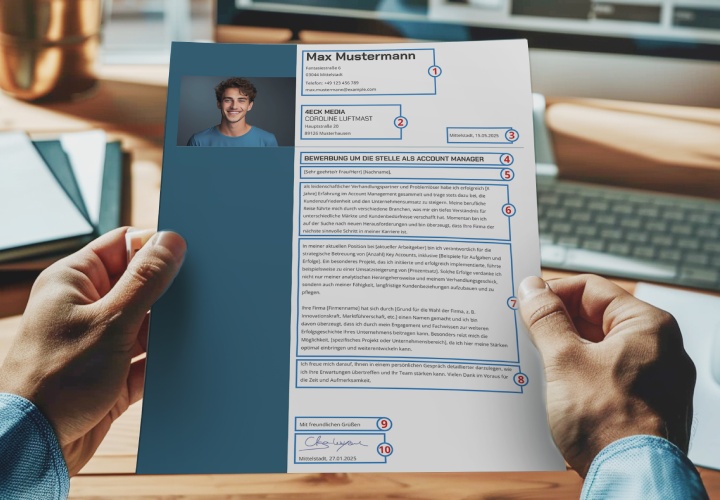Leadership and Human Resources
Are you interested in Human Resources and would like to learn more about it? Then you've come to the right place. We will show you the most important aspects of personnel management: from strategic HR work to systematic personnel development to the promotion of leadership skills. Discover how modern HR departments build teams, develop talents, and contribute to the company's success.
People develop, strengthen leadership, shape the future
Strong HR department, strong leadership, strong company
Human Resources and personnel management
Human Resources - a department that is hardly noticeable in everyday business life. These employees are neither involved in production nor provide direct services to customers. Nevertheless, it is precisely this department that ensures smooth operations. Especially in times of growing skills shortages, their importance becomes increasingly clear.
When the HR department functions like a Swiss watch, the company runs smoothly. The reason for this is simple: Contrary to the common belief that customers bring profit, it is actually the managers who win these customers over. It is the engineers who develop innovative products, and the skilled workers who operate the machines. The more qualified the employees, the more successful the company. Therefore, the HR department plays a key role - ensuring operational stability through top-notch personnel.
Human Resources is much more than a traditional HR department. The term describes the strategic management and development of the most valuable corporate resource: the employees. Modern HR takes on central functions for business success.
The tasks of human resources are diverse and demanding. They range from workforce planning to employee recruitment and development. HR managers design compensation systems, develop training programs, and promote corporate culture. Strategic HR work supports business goals through targeted measures.
The goals of Human Resources management are clearly defined. The focus is on recruiting and retaining qualified employees. HR ensures optimal working conditions and promotes employee satisfaction. Human resources develop concepts for performance improvement and motivation.
The modern HR function acts as a strategic partner to the management. It shapes change processes and supports digital transformation. Human resources are responsible for the development of leaders and talents. Professional HR work creates the foundation for sustainable business success.
Successful HR Management
Successful HR management is based on clear strategies and professional processes. The HR department works as a strategic partner to the management. They develop concepts for personnel work and systematically implement them.
Modern HR departments use digital tools for efficient processes. They optimize workflows and create space for strategic tasks. Digitalization enables a better data basis for personnel decisions. HR managers analyze metrics and derive actions from them.
The quality of HR work is reflected in measurable results. Successful HR departments reduce turnover and increase employee satisfaction. They shorten recruiting times and optimize personnel costs. These successes strengthen the position of the HR department within the company.
HR management is continuously evolving. The department adjusts its strategies to new requirements. They implement modern HR practices and regularly train their employees. A learning HR organization supports the development of the entire company.
Personnel development in the company
Workforce development is a core task of the HR department. The systematic development of employees ensures the future of the company. HR managers must carry out this work regularly and purposefully.
The development work is divided into two areas. The first area encompasses the continuous, less time-consuming work on the weaknesses of employees. This development reduces work errors and enhances basic professionalism. The second, more intensive area focuses on strengthening existing talents. This professional development requires more time and resources but leads to significant performance improvements. Employees find new solutions and work more efficiently.
In growing companies, the need for new leaders increases. There are two ways to fill leadership positions: hiring external candidates or targeted development of loyal employees. Internal development offers several advantages. A long-term employee in whom the company invests shows even more loyalty. They see their professional future in the company and develop alongside it.
Promoting internal talents minimizes risks. The HR department knows the strengths and potentials of these employees precisely. The gradual preparation for new tasks reduces the onboarding time. This strategy saves costs for external recruitment and quick qualification measures.
Leadership qualities are not only in demand at the management level. Even small teams need employees with leadership potential. People who take responsibility and stand up for results. This works better than group decisions where responsibility is diluted.
The systematic development of leaders from within creates opportunities for dedicated employees. It strengthens the company culture and ensures the transfer of knowledge and experience. This investment pays off through motivated and qualified leaders.
The Role of Leadership Strength
Leadership strength is expressed in the ability to make decisions and enforce them. It is evident in the daily interactions with the team, in crisis situations, and in implementing changes.
The HR department recognizes employees with natural leadership strength. These individuals take on responsibility and motivate their team by their own example. They advocate for common goals and support others in achieving them.
Strong leaders are characterized by clear communication. They communicate goals clearly and create an open work atmosphere. Their leadership style is based on mutual respect and trust. These qualities strengthen cohesion within the team.
The HR department promotes the development of leadership strength through targeted programs. It creates opportunities for practical leadership experience and provides professional coaching. Continuous work on leadership competencies ensures the quality of management.
A company benefits from strong leaders at all levels. They drive innovation and actively shape change processes. Their strength significantly contributes to the company's success.










